EP 849 What Has Donald Trump Done to the Biden Economy?
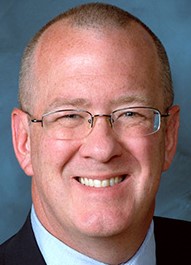 Years of low unemployment, record stock market gains and a slowing of the rate of inflation under President Jow Biden have given way to an economic muddle in the present under Donald Trump. Are we putting tariffs on allies or are we not? How long can this uncertainty go on without roiling markets and causing companies to hold back on investments? Will we try to extend the tax cuts and lead to an ever- increasing federal debt and will we really be able to bring manufacturing back to the U.S. with these policies–or should that even be our goal? And is much of what economists have seen to date leading to a period of stagflation, like we saw in the late 1970’s? Such are the questions that need to be sorted out in the coming months and years under this administration. Our guest, Michael Hicks, who self identifies as a conservative economist, is the director of the Center for Business and Economic Research and the George and Frances Ball distinguished professor of Economics at Ball State University. He posits that we would know the Administration has serious policy objectives if we saw a plan that includes broad tax increases, targeted spending cuts and a major reworking of entitlement programs. Has anyone seen that plan? Not to date.
Years of low unemployment, record stock market gains and a slowing of the rate of inflation under President Jow Biden have given way to an economic muddle in the present under Donald Trump. Are we putting tariffs on allies or are we not? How long can this uncertainty go on without roiling markets and causing companies to hold back on investments? Will we try to extend the tax cuts and lead to an ever- increasing federal debt and will we really be able to bring manufacturing back to the U.S. with these policies–or should that even be our goal? And is much of what economists have seen to date leading to a period of stagflation, like we saw in the late 1970’s? Such are the questions that need to be sorted out in the coming months and years under this administration. Our guest, Michael Hicks, who self identifies as a conservative economist, is the director of the Center for Business and Economic Research and the George and Frances Ball distinguished professor of Economics at Ball State University. He posits that we would know the Administration has serious policy objectives if we saw a plan that includes broad tax increases, targeted spending cuts and a major reworking of entitlement programs. Has anyone seen that plan? Not to date.
Podcast: Play in new window | Download
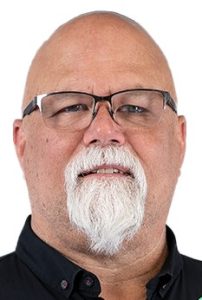 Whether it was Agent Orange in the Vietnam era, burn pits in Iraq, contaminated water at many bases across the country or 9-11 first responders, why do we, as a nation, make it so hard for these heroes to collect just compensation when we have subjected veterans and first responders to risks unimaginable to most? And that’s beyond the fact that many signed up with the full understanding that basic duties, apart from environmental and chemical hazards, might lead to horrendous medical outcomes, up to and including death. It’s disgraceful. Well, here’s one more. While civilians exposed to toxic chemicals at a nuclear test site in Nevada received compensation for their illnesses way back in 2001, totaling some $25.7 billion, the veterans, because of their classified service in this secret site, have not received one dime for the cancers and other malignancies caused by their exposure to the ionizing radiation which cannot be seen and yet it’s in the dust that they breathed, the water they drank and the food they consumed. David Crete, thanks to social media, began to share stories with other veterans of the Tonopah test range, sometimes referred to as Area 52. It’s where the U.S. government once tested and detonated nuclear bombs. He then founded The Invisible Enemy non-profit to pass legislation to address this injustice (theinvisibleenemy.org). He makes his compelling case on this podcast and urges you to call your U.S. Senators and Congressman to pass H.R. 1400. You have to hear his compelling presentation.
Whether it was Agent Orange in the Vietnam era, burn pits in Iraq, contaminated water at many bases across the country or 9-11 first responders, why do we, as a nation, make it so hard for these heroes to collect just compensation when we have subjected veterans and first responders to risks unimaginable to most? And that’s beyond the fact that many signed up with the full understanding that basic duties, apart from environmental and chemical hazards, might lead to horrendous medical outcomes, up to and including death. It’s disgraceful. Well, here’s one more. While civilians exposed to toxic chemicals at a nuclear test site in Nevada received compensation for their illnesses way back in 2001, totaling some $25.7 billion, the veterans, because of their classified service in this secret site, have not received one dime for the cancers and other malignancies caused by their exposure to the ionizing radiation which cannot be seen and yet it’s in the dust that they breathed, the water they drank and the food they consumed. David Crete, thanks to social media, began to share stories with other veterans of the Tonopah test range, sometimes referred to as Area 52. It’s where the U.S. government once tested and detonated nuclear bombs. He then founded The Invisible Enemy non-profit to pass legislation to address this injustice (theinvisibleenemy.org). He makes his compelling case on this podcast and urges you to call your U.S. Senators and Congressman to pass H.R. 1400. You have to hear his compelling presentation.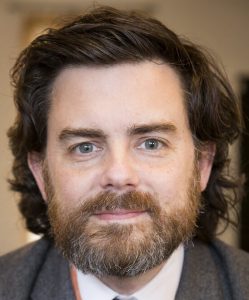 The Red Scare, after World War II, gave birth to the New Right in America and what we see today in the second Administration of Donald Trump. That, according to historian and New York Times editor, Clay Risen, the author of “Red Scare: Blacklists, McCarthyism and the Making of Modern America.” In his account of the history, the Red Scare, in which many in this country were wrongly accused of being Communists by Sen. Joseph McCarthy and the House Un-American Committee (HUAC) was a result of two things: a long-simmering conflict in which social conservatives faced off against New Deal progressives and the sudden, terrifying onset of the Cold War against the Soviet Union. Parallels to our current political situation are inevitable but distinct. Then, as now, underpinning our political divides is a deep and bitter cultural conflict brought on by fast changing demographic shifts and fears about a new knowledge-based economy which is dislocating many Americans. Historical resonance is at play with a direct line from the Red Scare to today.
The Red Scare, after World War II, gave birth to the New Right in America and what we see today in the second Administration of Donald Trump. That, according to historian and New York Times editor, Clay Risen, the author of “Red Scare: Blacklists, McCarthyism and the Making of Modern America.” In his account of the history, the Red Scare, in which many in this country were wrongly accused of being Communists by Sen. Joseph McCarthy and the House Un-American Committee (HUAC) was a result of two things: a long-simmering conflict in which social conservatives faced off against New Deal progressives and the sudden, terrifying onset of the Cold War against the Soviet Union. Parallels to our current political situation are inevitable but distinct. Then, as now, underpinning our political divides is a deep and bitter cultural conflict brought on by fast changing demographic shifts and fears about a new knowledge-based economy which is dislocating many Americans. Historical resonance is at play with a direct line from the Red Scare to today.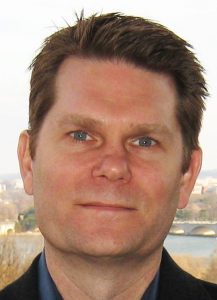 Back in 2021, then FBI Director, Christopher Wray, a Trump appointee, said that white supremacy is a “persistent, evolving threat” and the “biggest chunk” of racially motivated violent extremism in the U.S. To Mike German who served sixteen years as an FBI special agent and the author of “Policing White Supremacy: The Enemy Within”, that’s an understatement. It represents just a snapshot of a long America tradition of over-policing people of color in America, starting with slave patrols in our early history, and continuing virtually unabated until now. He starts the book by detailing the manifestations of this as reflected in the January 6, 2021 insurrection at the U.S. Capitol. He quotes former Republican campaign operative Steve Schmidt saying ‘there’s a 5th column within their ranks’ and that many of the police organizations underestimated the threat and some cooperated with it. This, German notes, is part of a historical pattern and one that gets swept under the rug because the FBI does not even compile accurate national data on white supremacist violence and has a culture of tolerating overt racism in law enforcement in general.
Back in 2021, then FBI Director, Christopher Wray, a Trump appointee, said that white supremacy is a “persistent, evolving threat” and the “biggest chunk” of racially motivated violent extremism in the U.S. To Mike German who served sixteen years as an FBI special agent and the author of “Policing White Supremacy: The Enemy Within”, that’s an understatement. It represents just a snapshot of a long America tradition of over-policing people of color in America, starting with slave patrols in our early history, and continuing virtually unabated until now. He starts the book by detailing the manifestations of this as reflected in the January 6, 2021 insurrection at the U.S. Capitol. He quotes former Republican campaign operative Steve Schmidt saying ‘there’s a 5th column within their ranks’ and that many of the police organizations underestimated the threat and some cooperated with it. This, German notes, is part of a historical pattern and one that gets swept under the rug because the FBI does not even compile accurate national data on white supremacist violence and has a culture of tolerating overt racism in law enforcement in general. Choice dominates every sphere of modern life, almost to a point where it becomes overwhelming. Which type of jelly should I buy? Which insurance policy is right? What should I watch on my 5 streaming services? And yet in the political realm often we have two choices and our understanding of what they offer may be limited, particularly in races for local offices where little attention is brought to them. The fields of psychology and marketing are aspects of choice–one to delve into how humans process choice and the other to try to convince us to buy certain services or products. Politically choice is a shared desire between the left and the right–one for example wanting to expand a woman’s right to choose and the other wanting to have more school choice. Looking at this historically, Professor Sophia Rosenfeld, the author of “The Age of Choice: A History of Freedom in Modern Life” takes us through a historical romp regarding the subject. It has changed vastly over the years. Can you imagine not having shops available to offer all that choice or limits on religious choices? Much of what we now take for granted evolved over time. She’ll explain.
Choice dominates every sphere of modern life, almost to a point where it becomes overwhelming. Which type of jelly should I buy? Which insurance policy is right? What should I watch on my 5 streaming services? And yet in the political realm often we have two choices and our understanding of what they offer may be limited, particularly in races for local offices where little attention is brought to them. The fields of psychology and marketing are aspects of choice–one to delve into how humans process choice and the other to try to convince us to buy certain services or products. Politically choice is a shared desire between the left and the right–one for example wanting to expand a woman’s right to choose and the other wanting to have more school choice. Looking at this historically, Professor Sophia Rosenfeld, the author of “The Age of Choice: A History of Freedom in Modern Life” takes us through a historical romp regarding the subject. It has changed vastly over the years. Can you imagine not having shops available to offer all that choice or limits on religious choices? Much of what we now take for granted evolved over time. She’ll explain.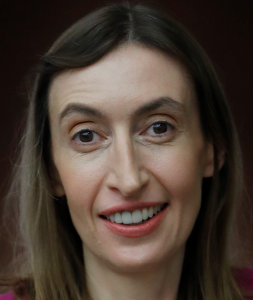 “We the People” is the opening salvo of the Constitution. However, the definition of the people was very limited at the time. And women, among others, were not part of the equation. The Constitution was aspirational and later amended to include the previously excluded and while women fought, alongside many men, to take their rightful place in our society, there is a long-stalled amendment to the Constitution codifying those rights. That issue, as we discuss, in this podcast is once again a subject of vigorous debate. What’s not at issue is how carefully and thoroughly our guest, Professor Jill Hasday of the University of Minnesota Law School details the history and modern challenges for women in America. In her book “We the Men: How Forgetting Women’s Struggles for Equality Perpetuates Inequality.”, she shines a bright light on a long line of judges, politicians, and other influential voices who have ignored women’s struggles for equality or distorted them beyond recognition by wildly exaggerating American progress. Our discussion of the overturning of Roe v. Wade in the Dobbs’ decision, and its implications for other privacy issues, must be heard if you want to fully understand what’s happening in this space.
“We the People” is the opening salvo of the Constitution. However, the definition of the people was very limited at the time. And women, among others, were not part of the equation. The Constitution was aspirational and later amended to include the previously excluded and while women fought, alongside many men, to take their rightful place in our society, there is a long-stalled amendment to the Constitution codifying those rights. That issue, as we discuss, in this podcast is once again a subject of vigorous debate. What’s not at issue is how carefully and thoroughly our guest, Professor Jill Hasday of the University of Minnesota Law School details the history and modern challenges for women in America. In her book “We the Men: How Forgetting Women’s Struggles for Equality Perpetuates Inequality.”, she shines a bright light on a long line of judges, politicians, and other influential voices who have ignored women’s struggles for equality or distorted them beyond recognition by wildly exaggerating American progress. Our discussion of the overturning of Roe v. Wade in the Dobbs’ decision, and its implications for other privacy issues, must be heard if you want to fully understand what’s happening in this space.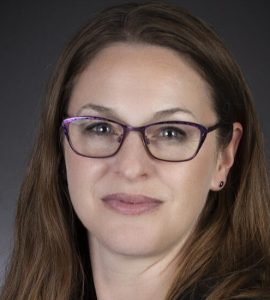 The last time we discussed this topic a few years back with our guest, the military, at least most branches, was struggling to meet its recruitment targets. And for an all-volunteer force deployed around the globe, that is not a good thing. The picture was a bit better in 2024, but the seismic changes at the culture of the Department of Defense may augur well for luring some young people in, while others may not see themselves fitting quite as comfortably into the new armed services. We will just have to wait and see. With all that said, we felt it was a good time to revisit the recruitment effort, particularly the Future Soldier Preparatory Course and other innovations to market military service. Greater, more marketing driven, efforts have been needed given the strength of the private sector job market in the last several years. We turn once again to Lindsay Cohn, Ph.D., and an Associate Professor, National Security Affairs, at the U.S. Naval War College to share her nuanced insights on this topic.
The last time we discussed this topic a few years back with our guest, the military, at least most branches, was struggling to meet its recruitment targets. And for an all-volunteer force deployed around the globe, that is not a good thing. The picture was a bit better in 2024, but the seismic changes at the culture of the Department of Defense may augur well for luring some young people in, while others may not see themselves fitting quite as comfortably into the new armed services. We will just have to wait and see. With all that said, we felt it was a good time to revisit the recruitment effort, particularly the Future Soldier Preparatory Course and other innovations to market military service. Greater, more marketing driven, efforts have been needed given the strength of the private sector job market in the last several years. We turn once again to Lindsay Cohn, Ph.D., and an Associate Professor, National Security Affairs, at the U.S. Naval War College to share her nuanced insights on this topic.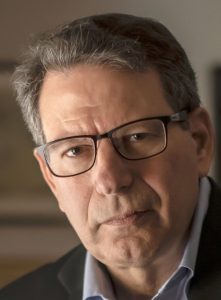 Robert Kaplan’s erudite take on the world’s geopolitical situation can be summed up in the manner described in our headline, but there is so much more nuance in his book “Waste Land: A World in Permanent Crisis” that you must read it for yourself to grasp the complexities of our fast-changing world in these illegible times. Trust me, a careful reading describes a new era of global cataclysm with a deadly cocktail of war, climate change, great power rivalry, rapid technological advancement, the end of monarchy and empire, and countless other dangers. Our guest makes the keen observation that the current geopolitical landscape must be considered alongside contemporary social phenomena such as urbanization and digital media. His framework encompasses philosophy, politics and literature as he helps us find our footing in this tremulous period. His masterful comparisons to the Weimar Republic are alone worth the price of the book. Or listen to the podcast, which is free to all.
Robert Kaplan’s erudite take on the world’s geopolitical situation can be summed up in the manner described in our headline, but there is so much more nuance in his book “Waste Land: A World in Permanent Crisis” that you must read it for yourself to grasp the complexities of our fast-changing world in these illegible times. Trust me, a careful reading describes a new era of global cataclysm with a deadly cocktail of war, climate change, great power rivalry, rapid technological advancement, the end of monarchy and empire, and countless other dangers. Our guest makes the keen observation that the current geopolitical landscape must be considered alongside contemporary social phenomena such as urbanization and digital media. His framework encompasses philosophy, politics and literature as he helps us find our footing in this tremulous period. His masterful comparisons to the Weimar Republic are alone worth the price of the book. Or listen to the podcast, which is free to all.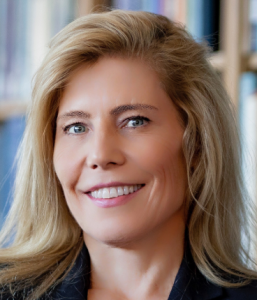 Donald Trump said he would end Russia’s war of aggression against Ukraine on day one of his second Administration. While that date has come and gone, he is making moves to find a resolution to the conflict, but is it a continuation of the U.S.-led NATO effort on the side of Ukraine or has America switched teams? Given Trump’s fascination with strongmen, like Putin, and major powers paying little deference to smaller actors, fears are growing that all of Ukraine’s brave sacrifices may result in the loss of territory and few security assurances. President Trump’s words suggest a major departure from Biden era policies. It raises the specter of the 70- year NATO alliance, one which many consider the greatest defense structure in modern history, in rubble in its wake. Greta Uehling, a professor at the University of Michigan, and author of “Decolonizing Ukraine: The Indigenous People of Crimea and Pathways to Freedom” joins us to discuss the possibilities going forward.
Donald Trump said he would end Russia’s war of aggression against Ukraine on day one of his second Administration. While that date has come and gone, he is making moves to find a resolution to the conflict, but is it a continuation of the U.S.-led NATO effort on the side of Ukraine or has America switched teams? Given Trump’s fascination with strongmen, like Putin, and major powers paying little deference to smaller actors, fears are growing that all of Ukraine’s brave sacrifices may result in the loss of territory and few security assurances. President Trump’s words suggest a major departure from Biden era policies. It raises the specter of the 70- year NATO alliance, one which many consider the greatest defense structure in modern history, in rubble in its wake. Greta Uehling, a professor at the University of Michigan, and author of “Decolonizing Ukraine: The Indigenous People of Crimea and Pathways to Freedom” joins us to discuss the possibilities going forward.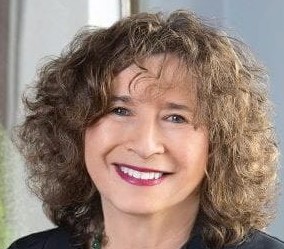 When Professor Nancy Rosenblum joined us months back, she and Russell Muirhead had written a book called “Ungoverning” The Attack on the Administrative State and the Politics of Chaos.” Their case study was the first Trump Administration. And while every modern state is an administrative state, the bureaucracy at all levels of government has been under attack for decades claiming that it is rife with waste, fraud and abuse. If so, then why fire, as one of Trump 2’s first acts, the Inspectors General for a number of agencies?. They are the internal auditors who have found billions of dollars in inefficiencies over the years. Perhaps it is because the goal is not institutional reform, but deconstruction. Then, you might say, why? When you replace career civil servants with political cronies you get more control vested in the Office of the President and the Imperial Presidency on steroids. Our guest, Professor Rosenblum, a Professor of Ethics in Politics and Government Emerita at Harvard University, breaks down what she sees as three actors playing out their long- held desires–President Trump, Elon Musk and the Project 2025 crowd. Are they on a course to deconstruct the federal government or a crash course in hubris and overreach? Find out today on the podcast.
When Professor Nancy Rosenblum joined us months back, she and Russell Muirhead had written a book called “Ungoverning” The Attack on the Administrative State and the Politics of Chaos.” Their case study was the first Trump Administration. And while every modern state is an administrative state, the bureaucracy at all levels of government has been under attack for decades claiming that it is rife with waste, fraud and abuse. If so, then why fire, as one of Trump 2’s first acts, the Inspectors General for a number of agencies?. They are the internal auditors who have found billions of dollars in inefficiencies over the years. Perhaps it is because the goal is not institutional reform, but deconstruction. Then, you might say, why? When you replace career civil servants with political cronies you get more control vested in the Office of the President and the Imperial Presidency on steroids. Our guest, Professor Rosenblum, a Professor of Ethics in Politics and Government Emerita at Harvard University, breaks down what she sees as three actors playing out their long- held desires–President Trump, Elon Musk and the Project 2025 crowd. Are they on a course to deconstruct the federal government or a crash course in hubris and overreach? Find out today on the podcast.